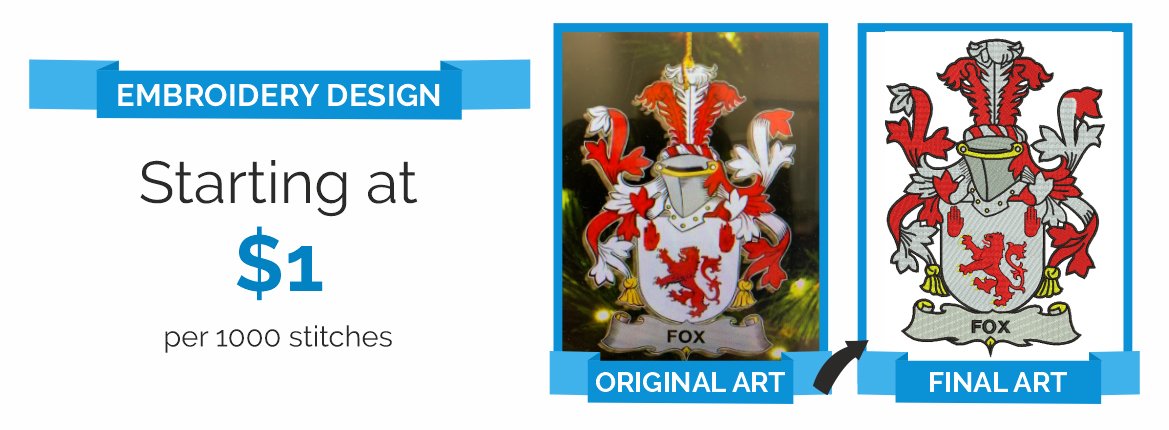What Factors To Know For Choosing Embroidery Digitizing Services
One of most prominent deterrents to the assembling system is an extended plan process. With delivery dates on the line and rivalry at its heels, an organization that invests extensive stretches of energy planning its items isn't constantly compensated for item quality. To really contend in commercial center, an organization that creates its own items needs a way of truncating the plan interaction without forfeiting quality. One technique that organizations use toward this end is laser examining.
Laser examining for 3D Puff embroidery digitizing is generally connected with the designing/fabricating business, and there's a valid justification why: a laser scanner's capacity to catch an article's exact actual information and express it as editable information models eliminates experimentation from the designing system while conveying more precise outcomes than customary studying strategies.

Regardless of whether an organization purchases its own examining gear or rethinks its filtering needs to a laser checking administration otherwise called a 3D digitizing service it gets a similar final result: modernized documents of a checking subjects information focuses that can be communicated as polygon network models, surface models and strong CAD models of embroidery digitizing.
Polygon network models-otherwise called network models-are utilized mostly for chronicled and representation purposes due their "weighty" informational indexes that are somewhat un-editable. Surface models are more editable than network models, however are just editable at their surface, making them ideal for planning creative and natural shapes. Strong CAD models for 3D Puff embroidery digitizing are the most editable models, and can be straightforwardly produced from because of their joining plan purpose.
Depending upon the idea of their plans, a few organizations advantage from one information model more than another. In any case, four advantages that laser filtering for embroidery digitizing brings to the plan interaction for all organizations are: an increment in the adequacy of working with complex parts and shapes; the capacity to handily plan an item that fits one more organization's part; the capacity to effortlessly refresh an obsolete CAD model; and the capacity to machine more seasoned, out of creation parts from their CAD document.
